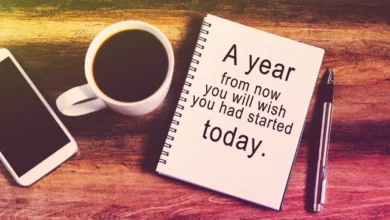How Smartphones Affect Mental Health: Tips for Digital Balance

Let’s face it — smartphones are now more like digital appendages than mere gadgets.We use them to check emails, scroll social media, marathon shows, and stay connected with friends. But have you ever stopped to wonder: How do smartphones affect mental health? Are these tiny devices helping us stay connected, or are they quietly taking a toll on our emotional wellbeing?
The relationship between smartphones and mental health is complicated. Yes, they’re powerful tools, but they also come with hidden risks — especially when we lose balance and let digital overload take over. This article will unpack the impact of smartphones on mental health, explore the signs of digital overload, and share practical tips to help you break free — without ditching your beloved device.
How Smartphones Affect Mental Health: The Hidden Impact
We can’t deny it: smartphones affect mental health in significant ways, especially through their addictive nature. Every beep, buzz, and notification triggers a small rush of dopamine in your brain — the very chemical linked to pleasure and reward. This dopamine-driven loop keeps us hooked, making it tough to put our phones down.
But here’s the catch — this constant stimulation can fuel smartphone addiction and anxiety. Research shows that excessive phone use often leads to higher levels of stress, anxiety, and even depression symptoms. When you’re checking your device obsessively, your brain gets trapped in a craving cycle that’s exhausting mentally.
Plus, the endless scrolling through social media feeds can worsen feelings of loneliness and negative self-comparisons. Seeing only the filtered highlights of others’ lives may leave many feeling inadequate or left out, chipping away at self-esteem and overall mental wellness.
How Smartphones Affect Mental Health: Understanding Addiction and Anxiety
If you think it’s all about how many hours you spend on your phone, think again. It’s also about the quality of that time. Are you engaging meaningfully or just endlessly scrolling?
Excessive screen time, especially passive use like doomscrolling or marathoning shows, can cause mental fatigue and emotional numbness. Not to mention, the blue light emitted by smartphone screens interferes with melatonin production, which is crucial for healthy sleep cycles. Lack of sleep then spirals into worsened mood, anxiety, and difficulty concentrating.
Digital Detox: Why It’s the Best Medicine for Your Brain
If you feel overwhelmed, anxious, or constantly distracted, it might be time for a digital detox for emotional wellbeing. The idea isn’t to give up your phone altogether (we’re not saying go Amish!), but to intentionally unplug to reset your brain.
Start with simple goals: no phones during meals, an hour of screen-free time before bed, or a phone-free day once a week. Even small breaks can reduce stress, improve sleep, and help you reconnect with the world offline.
“Almost everything will work again if you unplug it for a few minutes… including you.” – Anne Lamott
What Happens to Your Brain With Too Much Phone Use?
When you’re glued to your phone, your brain’s prefrontal cortex — responsible for decision-making and self-control — gets overwhelmed. Constant dopamine hits from notifications make it harder to focus and regulate emotions.
This can lead to impulsivity, irritability, and reduced patience. If you get restless or anxious without your phone, you’re experiencing the mental effects of digital overload firsthand.
Tips to Break Free from Digital Overload
Here’s the good news: you don’t have to give up your phone to protect your mental health. With a few mindful habits, you can take back control.
- Monitor Your Smartphone Usage: Awareness is the first step. Most smartphones have built-in trackers to show how long you’re on apps.
- Cut Down on Digital Distractions: Only keep essential alerts on — trust me, your group chat can wait.
- Create phone-free zones: Bedrooms, dining areas, and family time should be sacred phone-free moments.
- Be Intentional with Your Phone Use: Before unlocking your phone, ask, “Do I really need to check this now?”
- Engage in offline activities: Reading, exercise, meditation, or even a stroll in nature can recharge your mind and improve mood.
How to Start Your Digital Detox: A Simple Guide
If you’re ready to start, here’s a quick plan to ease into a healthier phone routine:
- Day 1-2: Track how much you use your phone. Identify the apps that suck up most of your time.
- Day 3-4: Turn off non-essential notifications and delete apps that cause stress or distraction.
- Day 5-7: Introduce phone-free periods — mealtimes, 1 hour before bed, or an afternoon walk.
- Beyond: Slowly increase these phone-free periods and replace screen time with hobbies or socializing offline.
Remember, the goal isn’t perfection but progress!
Final Thoughts: Your Phone Should Work For You, Not the Other Way Around
Smartphones are incredible, but they shouldn’t control your mental health. By understanding how smartphones affect mental health and recognizing signs of smartphone addiction and anxiety, you can take steps to protect your wellbeing.
With mindful use, a little digital detox, and setting boundaries, you can find balance in this digital world without sacrificing your connection to technology.










pkmqxkzuvqgholzmmtigqtqywhxlol
I was in a loving relationship with my husband for 13 years and we have three beautiful kids together. Things started changing when he got a new job that paid more. I started getting suspicious but could never confirm anything until a colleague of mine introduced me to a hacker. This hacker helped me spy on my husband without any physical access to his phone. I was able to receive his phone text messages and messages from all his social media accounts in real time. Additionally, he can help with improving credit card debt. You can contact him at +1 (564) 224-5803 . Just tell him that I referred you and he will be willing to help. You can also reach out to him if you’re unable to withdraw funds from any online trading platform like expert-option, cal financial, Analyst, coinspot, Ctxprime, and many more.
Hey guys, just wanted to say that I’ve been using bet3665 for a while now and it’s pretty solid. Good odds and easy to navigate. Check it out if you’re looking for a new place to bet. bet3665
Betano e Flamengo! Huge partnership. Going to see what odds and promotions they have for Flamengo games. This is going to be good. betanoeflamengo
For quick betting on my phone, I grabbed the 5hbetapp here. Simple to use and gets the job done. No complaints so far. You can grab it here 5hbetapp.
I got the 755bet app from 755betappdownload. Fast and easy. I was up and running in minutes, pretty good stuff. Try it out here 755betappdownload.